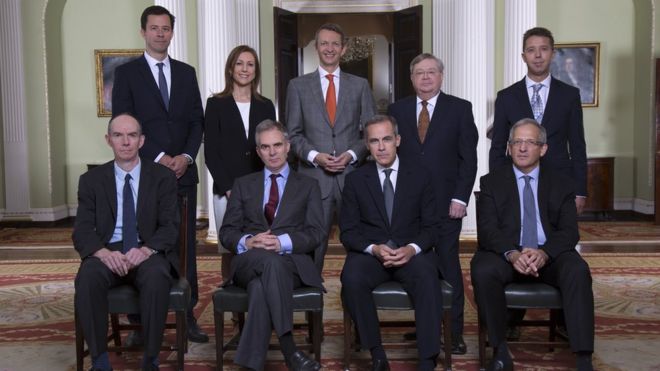Are you stuck working with a project manager who is manipulative and dishonest? If you are, you’re not alone!
Today’s workplace is a cut-throat environment with everyone trying to get ahead in some way, shape, or form. It’s no surprise that there are malicious, sneaky project managers who will do anything to get a leg up to succeed or survive, even if it means throwing you under the bus. Like a clever politician, these project managers keep their desires hidden, but underneath a friendly and charming exterior is a highly destructive individual whose goals are power and control. Pretending to pursue the greater good, he or she adopts the mantra of “company first” with a fervency that inspires admiration and respect, and most people accept his or hers claims of a selfless pursuit of noble causes.
Regardless of your industry, profession, experience level or company, these manipulative people exist and, if given the right opportunity, they can ruin your reputation and career prospects. They’ll tell you that the entire team hates you, thinks you’re arrogant, stupid, or incompetent, and attempt to manipulate you into believing that their opinions are objective facts. A study published in the Journal of Applied Psychology called it “social undermining” and “bottom line mentality.”
“According to a recent survey, roughly 90% of folks who read this post are presently working with at least one person who, mentally, would be described as a manipulator”.
Proving yourself in a new organization is hard enough. When someone manipulates and lies about you, it can hurt your relationships, your reputation, and your career. Luckily, Project Journal has 3 tips for effectively dealing with this workplace danger.
1. Don’t Ignore Your Gut
I should’ve seen it coming. Unfortunately, there isn’t a clear-cut answer to the question “Friend or foe.” If you find yourself putting up your guard around a co-worker, you might wonder if you’re imagining things and being paranoid? Well, maybe you are, but under no circumstances should you ignore your feeling. From experience, this is often the very first sign of trouble. Weak leaders sometimes resort to emotional deceit as a weapon for getting things done. Try to consider facts objectively. Manipulation is normally felt, rather than heard or seen, so you must listen to your gut.
What makes you mistrust this person? Do they constantly gossip? If so, be careful as those who gossip to you, will probably be doing the same about you too and like Mom always said, “If you don’t have anything nice to say, don’t say anything at all.” Plus, you don’t want to get caught up in the drama when people find out about this control freak’s gossiping.
Trust that you will be thrown under the bus when “stuff” hits the fan. If you’re still unsure, you should run their behaviour by objective people you trust. As trust is built on the foundations of a good relationship, instead of basing trust on someone’s words, observe their deeds.
2. Dealing with a Bad Apple
There’s a lot to be said for the old saying, “One bad apple can spoil the whole barrel.” Not only is that true for fruit, but it holds a lot of merit in the work environment. Rude behavior is contagious. Toxic manipulative employees have an unhealthy ripple effect that harms co-workers, managers, and subordinates alike. They lack positive personality traits, such as genuine concern for others, a generous and understanding nature, a desire to teach and encourage, a desire to have straightforward dealings with others. They dwell in a very dark place lit only by their own ambition.
“It takes just one malicious employee among the ranks to wreak havoc on your team’s culture.”
Healthy human interactions are not dominated by manipulation. If you feel you can’t trust them, don’t. Manipulators do not communicate openly. Instead, they resort to flattery or play the victim to gain your trust and sympathy. Through artful, indirect and devious methods, they influence and control others and have a fair amount of social support, most likely because no one wants to be on their bad side. But that doesn’t mean their behavior isn’t harmful.
Your priority in this situation must be to protect your professional standing. Begin documenting every instance of destructive behavior and take it to a higher authority. When a co-worker starts manipulating you and ignoring the behavior doesn’t work, distance yourself, if possible and keep all correspondences. When colleagues try to sabotage you, they might tell you lies to cause you to make mistakes. The more you cover yourself, the less you have to worry about. Change your passwords, shut down your computer when you leave your desk, and keep sensitive documents under lock and key. Remember to “choose your words carefully when sending emails so that things you write can’t come back to bite you. Unfortunately, if you lose your cool, you will be in danger of looking undignified.”
“When you know what a man wants you know who he is, and how to move him.”
’- George R.R. Martin, A Storm of Swords
It can be tempting to excuse the antagonistic worker who seems zealous about his job, but clearly, those employees may be undermining the entire workforce. Being direct lets the other person know you’re aware of their manipulative behavior, and in some cases, that may be enough to nip it in the bud. If you stay out of their world of negativity, you will be a much more difficult target for their manipulation.
3. Counteracting Sabotage
Manipulators are blind to the serious defects in their character, but keenly aware of the slightest weakness or imperfection in others. They are judgmental, suspicious, demanding and calculating, all negative personality characteristics. Even their outward charm is cold and calculated. Before you can deal with the situation, you need to understand the impact.
Is it a small lie with little effect? Is it a big lie that requires damage control or even legal action? Consider how others might view the situation. Although it may be difficult, the best choice might be simply to move on as the people who make it in the long-term are the ones who are honest, hardworking and able to maintain their professionalism.
“According to a recent Wall Street Journal article, workplace sabotage is on the rise in this difficult economy.”
If you choose to directly address the situation. It is critical to use neutral language and tone of voice. Do not stoop to their level, it is important to keep your integrity. Consider having witnesses to your conversation so it’s not your word against theirs.
Your final action can be accepting an apology and moving on, or it can be reporting the lie to a higher authority. In extreme cases, it can be making a formal complaint or hiring an attorney. It’s smart to search for job postings, even when you have no intention to quit. Obviously, you don’t want to let one bad apple lead to your resignation but, if nothing else, knowing you have options can help you feel more empowered and in control of the situation.
Other signs sabotage may be in the works: You don’t receive a promotion or responsibilities you logically should have gotten; cold or averse behavior from management that is (seemingly) out of nowhere; sudden and unexplained alienation by individual co-workers or even entire cliques; or unwarranted and continuous kind behavior from someone that was formerly aloof, ambivalent or even aggressive.
Manipulative behavior is widespread, but fortunately, it doesn’t exist everywhere. Do you have manipulative co-workers? How do you dodge their requests and still manage to pave a successful career path? Tell us what you think?
Love this article? Share it with your friends on Facebook



















